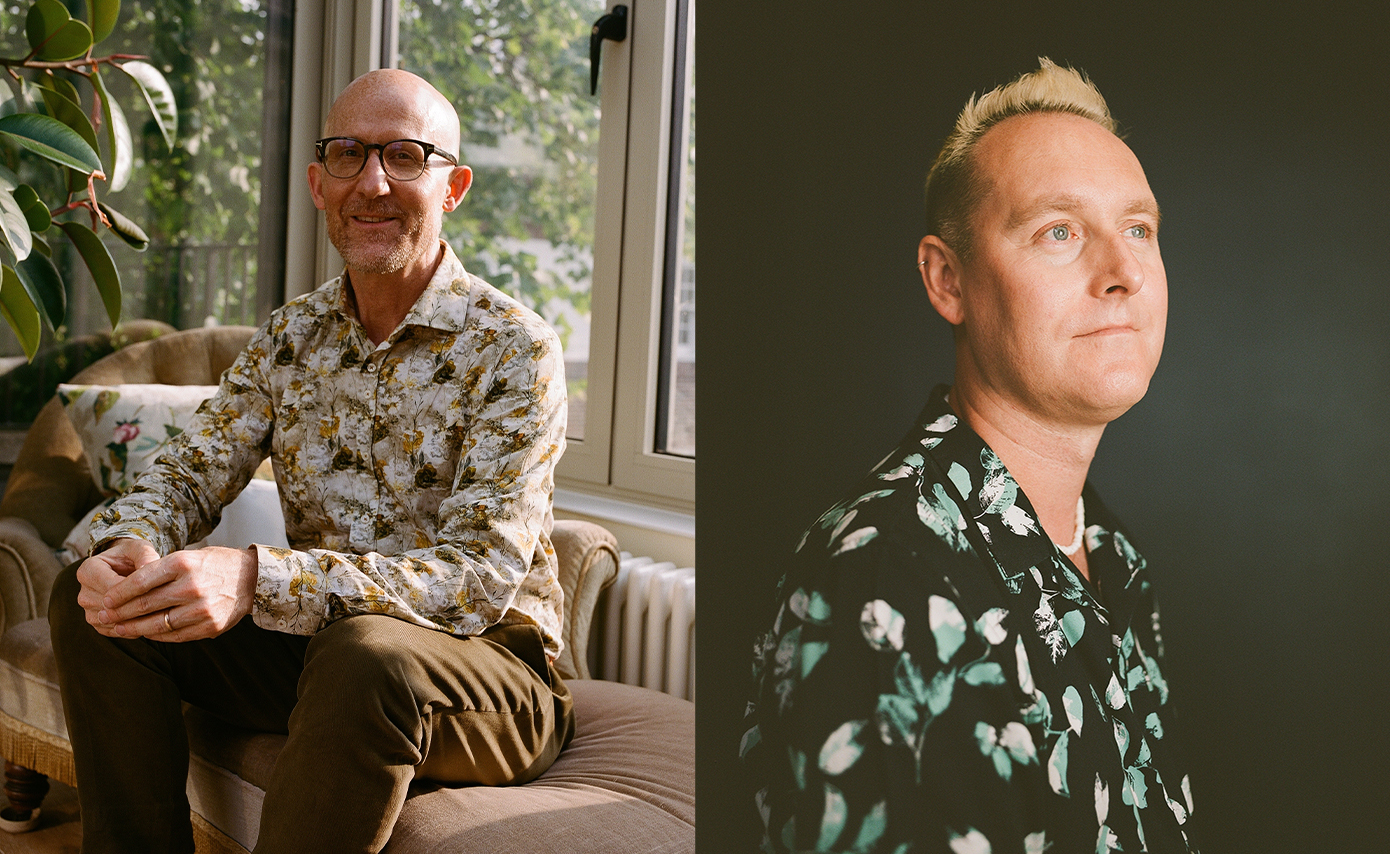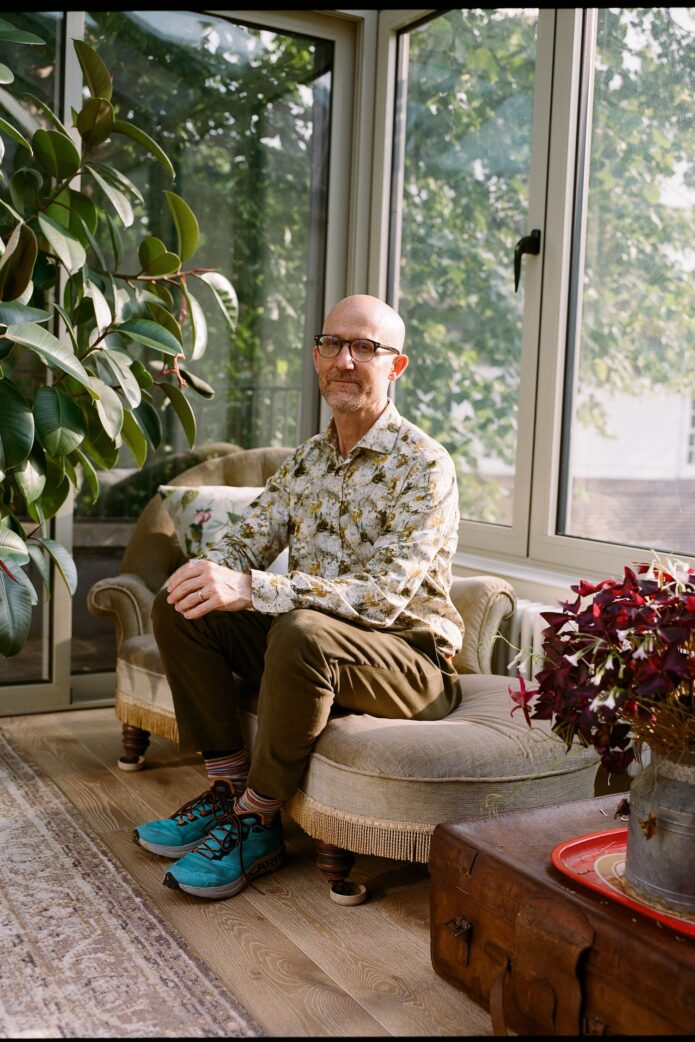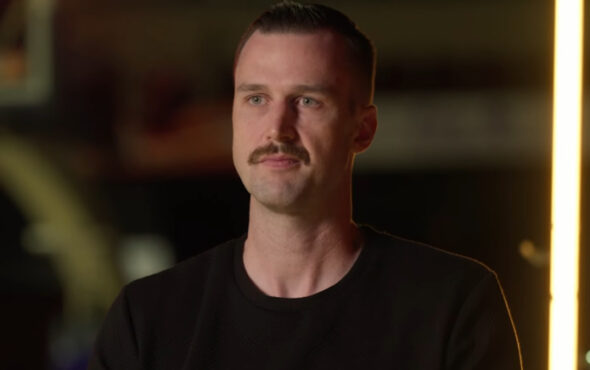
Living with HIV has changed significantly over the years, thanks to improved treatment options, greater public education, and the gradual dismantling of discriminatory laws — including outdated restrictions on blood and organ donation, barriers to IVF and sperm donation, and the criminalisation of HIV transmission. HIV research and science is continuing to evolve, so it is always important to keep updated on any new developments from novel treatment options to innovative ways to manage living with HIV.
However, it can be hard to know where to start in terms of research and reliable resources and information. That’s why, in collaboration with ViiV Healthcare, we sat down with Dr Tristan Barber and Tom Hayes-Isaacs. Tristan is a consultant physician focussing in the field of HIV, who has more than twenty year’s experience and will be the new chair of the British HIV Association (BHIVA). Tom is an awareness activist who began blogging about their experiences of living with HIV when they were diagnosed in 2011, and who now continues this mission of battling misinformation and raising awareness with the charity Saving Lives UK.
Below, Tristan and Tom engage in an in-depth conversation around key topics for people and communities living with HIV, as well as allies looking to get better informed. From changing HIV treatment options to advice for people or communities living with HIV at different stages of diagnosis, navigating the patient/healthcare practitioner relationship, and battling stigma, here are key points you need to know, spoken through by experts with lived experience.
How HIV has changed
“Compared to the 80s when life expectancy was short and there was no successful treatment, the changes in the management of HIV have been incredible” – Tristan Barber
Tristan, as a doctor and researcher, what do you think has changed in the management of HIV and people living with HIV since the 80s?
Tristan: Many people living with HIV can now live their lives normally. Treatment can be as simple as one pill once a day or different formulations and modalities to suit each individual’s need. They can have children, and work in almost every career. They cannot transmit the virus sexually if on treatment with an undetectable viral load on a blood test. Compared to the 80s when life expectancy was short and there was no successful treatment, the changes have been incredible.
We have gone from having regimens where tablets need to be taken multiple times per day to now having regimens which allow for medication to be taken much less frequently. What new treatment options have become available during your career?
Tristan: I have worked in the HIV field for over 20 years. When I started, we had limited treatment options, many with lots of side effects and toxicities. I have worked on and seen the development of new drug classes, particularly the integrase inhibitors which are now in first line treatment options around the world in all major guidelines. I have also seen the development of PrEP, an antiretroviral that can be taken daily or as needed to prevent someone acquiring HIV through condomless sex.
Tom, you were diagnosed 14 years ago, in 2011. How has treatment changed recently since your diagnosis?
Tom: HIV treatment has changed dramatically over the past forty years, but even in the fourteen years I’ve been diagnosed the pace of change hasn’t slowed down.
Back in 2011, I was taking one pill once a day – something that was very important to me to aid with my adherence (taking treatment at the same time each day). Unfortunately, that older medication had some pretty unpleasant side-effects. I’ve changed a couple of times since then, and now I’m very happy and not experiencing side effects on a newer combination pill.
The patient/doctor relationship
“Your quality of life is more important than starting an awkward conversation” – Tom Hayes-Isaacs
From your medical perspective, Tristan, how has the relationship with your patients changed over time?
Tristan: The community has always been at the forefront of advocating for HIV treatment and care. Some key slogans support this particularly ‘nothing about us without us’. To be honest I don’t even use the term ‘patient’ anymore. These are people, people with HIV, and they are experts by experience. I think in many ways HIV has led on person-centred care, placing people and their loved ones in the centre. In many ways this hasn’t changed, as it was true in the early days also, where HIV services stood up for people experiencing stigma, and provided care in a unique way. Now that HIV is more manageable we continue to strive for this despite funding restrictions that may make it difficult for us to always provide everything we would like to.
And what does a good patient/HCP relationship look like in your opinion?
Tristan: It should be open, honest, trustworthy, and never complacent! As HIV is a lifelong condition it needs to be a partnership, with both people working together to achieve the best outcome for the person with HIV.
Tom, with the above in mind, how is your relationship with your current doctor and what do you think makes a good patient/doctor relationship?
Tom: I’m very lucky to have a doctor that is both one of the best in her field, as well as a truly wonderful human being. Although I may only see her a couple of times a year, we chat for ages about what’s been going on in both our lives. The actual time spent on HIV is probably in the minority compared to the amount of gossiping! Regrettably, not everyone has the same relationship with their HIV care team. One of the first doctors I had was a very grumpy gentleman who treated the patients like numbers – not people.
A good patient-doctor relationship must be grounded in honesty and mutual respect. As our doctor you’re asking us to share very personal information about ourselves, our sex lives and more – people aren’t going to do that if they don’t feel safe and respected. As patients we need to recognise that our doctors need us to be onboard and engaged so that we can pick the right treatments and care for the best outcomes.
To both of you, how can people with HIV advocate for their needs?
Tristan: I think the best way is to be prepared! Keep notes between appointments – what isn’t working for you, what problems have you had, what do you need from the appointment at your clinics? If something isn’t working, say so. Feedback always shows that people like seeing the same doctor, who knows their story, but sometimes I think seeing someone new, even if only for one visit, may give a different perspective, result in different questions or referrals, and can be a way to get a different opinion, even if you then revert back to your long standing and trusted clinician. We all work as a team and want the best thing for those we care for.
Tom: Sometimes we all need to be our own advocate and that can often seem daunting, but no-one knows your needs like you do. Understanding more about your condition, your care and your treatment goes a long way towards making you feel empowered to advocate for yourself. You don’t need to be an expert, but knowing the basics will help you and your doctor have a more constructive conversation and hopefully build a treatment plan that fits all your needs.
If you don’t feel you’re getting the level of care and support that you need from your HIV care team it’s important to know that you have options. You can ask to see another doctor or nurse. You can move your care to another HIV clinic. Don’t be afraid to speak out. Your quality of life is more important than starting an awkward conversation.


Advice for people and communities living with HIV at different stages of diagnosis
“Science and research evolve, and we always have new treatment options” – Tristan Barber
Tristan, as a doctor, what advice would you give to someone recently diagnosed with HIV?
Tristan: Most people newly diagnosed with HIV have a normal life expectancy. Treatment is well tolerated and simple, and we should be able to find something that doesn’t cause side effects. Once on successful treatment (usually after 6 months), they cannot transmit the virus through sex, and can have children (should they choose to!) who are at extremely low risk of acquiring HIV. We changed the law in the UK so that people with HIV can now donate sperm and eggs to start a family if they choose to. Despite a normal life expectancy, we know people with HIV are at slightly higher risk of some things, like some cancers and infections, and that’s why it’s important to attend for specialist care and report symptoms early. But, in general, life can be lived normally (and well!) with HIV.
And what advice would you both give to someone who has been receiving treatment for a while but may be unaware of treatment options?
Tristan: Science and research evolve, and we always have new treatment options. People with HIV can be given links and written information to find out more about these. We also have peer support workers and services who can help them find out more about new treatments. People may be advised to switch treatment for a number of reasons – age, interactions with other medicines, side effects, or just new data and new options. The thought of changing therapy can be scary for some people, but for the most, if they don’t get on with a new treatment, they can always be reassured they can switch back, or that there are other options that should work well for them.
Tom: It’s very easy to get comfortable and just accept side-effects from medications, you don’t want to try something else in case it’s worse, you don’t want to rock the boat, you don’t want to cause a fuss with your HIV care team – I get it! The thing is, HIV medication has advanced so much, in the last couple of years alone, that what was cutting-edge ten years ago is now no longer routinely prescribed. Long-term impacts of treatments start to emerge, we discover newer and kinder drugs.
I often compare keeping on top of your HIV treatment to an iPhone (or your Android, if that’s your thing). It’s easy to stick with that old iPhone 6 that’s held together with tape because moving all your photos and apps to a new phone seems like a lot of work, but you’re a good few generations behind now and you’re missing out on all the new features – in this case smaller pills, less frequent dosing, fewer side effects etc. Treat yourself. Ask your HIV care team if there’s a newer, or more optimised, HIV treatment you could be on. There’s no need to put up with a lower quality of life.
Focusing on quality of life
“Individualising treatment is key to ensuring people get the best option for them” – Tristan Barber
Tristan, picking up on what Tom just mentioned, what are some reasons for changing treatments beyond side effects but instead focussing on quality of life?
Tristan: As treatment has evolved we have newer options that may include fewer pills, and may cause less long-term issues for someone with HIV. Even though someone may not be experiencing side effects, some of the older drugs may impact on their bones, kidneys, or cholesterol for instance, things that we monitor in clinic regularly. Newer treatments may avoid these issues and help maintain health and quality of life for the long term.
Tom, from a patient point of view, what advice would you give to stay informed about HIV and treatment options?
Tom: For a lot of people the easiest way to stay informed about the latest HIV treatment options would be to ask your HIV care team. The doctors, nurses, pharmacists and peer support workers will all be able to fill you in on what’s hot and what’s not in the world of HIV treatment. If you’re interested in learning a bit more in your own time, I can heartily recommend the i-base.info website. They make some incredibly useful and well-designed guides to HIV treatment and care. You can also check out Saving Lives UK’s HIV news articles at beyondpositive.org.
Battling stigma and advancing awareness
“A lot of the negative attitudes and perceptions people have about folks living with HIV have barely changed since the AIDS epidemic of the 1980s – and frankly, it’s exhausting” – Tom Hayes-Isaacs
Tom, you’ve been working as an awareness activist for people and communities living with HIV for over a decade. How do you navigate HIV stigma and how is this stigma changing?
Tom: Whilst HIV medicine has changed and advanced at breakneck speed over the past forty years, sadly the same can’t be said for stigma. A lot of the negative attitudes and perceptions people have about folks living with HIV have barely changed since the AIDS epidemic of the 1980s – and frankly, it’s exhausting.
As someone living openly with, and working in, HIV it doesn’t really have much of an effect on me these days. Water off a duck’s back. But online messages like “You clean?” and “DDF” (drug and disease free) can really have a devastating impact on newly diagnosed people who’re still coming to terms with their diagnosis themselves. If someone is making the decision to share their status with you, please see that as the big trust fall that it is – and respect their privacy and decision.
And how can we advance awareness of U=U?
Tom: Education. Conversation. Representation. Sex and relationship education in schools needs to be much better. HIV awareness, U=U, PrEP and PEP should be part of a robust sexual health education framework – taught consistently at every school, including private and faith schools.
We need to talk more about HIV, and sexual health in general, in our day-to-day life. Let’s not be shy about politely and respectfully asking for someone’s HIV status and when they were last tested before you hook up. Talk to your friends about new HIV news you’ve heard, or TV storylines that covered HIV well.
People with HIV should be involved in designing the services that provide their care and support. Representation of HIV, and different experiences of HIV, at every level ensures that services are appropriate for our needs – and that everyone, both patient and healthcare worker alike, understands topics such as U=U.
Thanks so much for your time, both. Is there anything else they want to add?
Tom: It’s 2025, not 1985. HIV has changed. If you’re living with HIV you deserve to be on a treatment that fits around you, and not the other way around. If you’re unhappy with your current treatment, please speak to your HIV care team – we want you to be living your best life and HIV should be no barrier to that.
This article was sponsored and content reviewed by ViiV Healthcare. ViiV Healthcare is a global specialist pharmaceutical company 100% dedicated to HIV medicines and research. ViiV Healthcare’s mission is to leave no person living with HIV behind.
TB and TH-I received a fee for their involvement. This article is for education and awareness only and does not contain medical advice. Anyone needing medical advice should contact their GP, Sexual Health or other appropriate medical service provider.
Ready to take control of your health? Arm yourself with knowledge, visit here and download a conversation guide to support discussions with a healthcare professional. Knowledge is power.
NP-GBL-HVX-WCNT-250023 | July 2025





